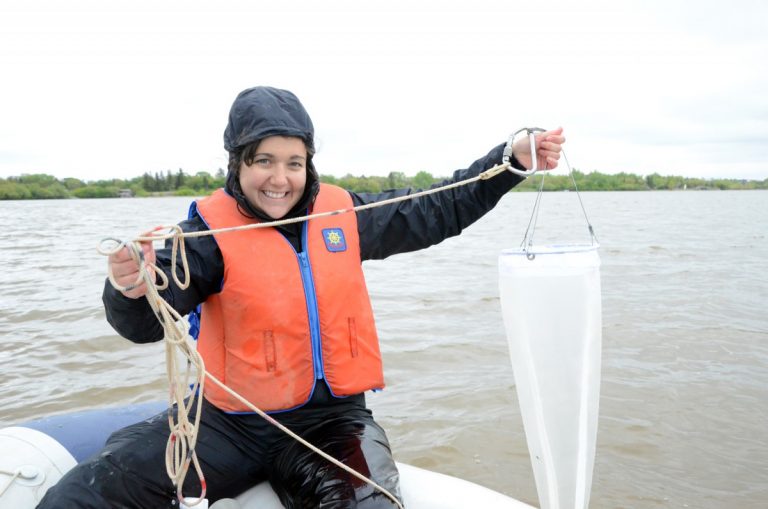
“…we are pleased to fund innovative projects and research & development institutions like the Fedoruk Centre – to advance our province and ultimately create a better quality of life for all Saskatchewan people.” – Jeremy Harrison, Minister for Trade, Tourism, Innovation and Immigration
Since being established in 1911, the University of Regina has evolved to become one of Canada’s leading public research institutes. Located in Regina, Saskatchewan, amid the nation’s most picturesque Prairies, students of this institution get to make the most of the Wascana Centre’s beautiful natural landscape – a stunning backdrop that is actually one of North America’s largest urban parks.
The Faculty of Science at Regina educates and inspires almost 1,800 students at the undergraduate and graduate level, enriching them through cutting-edge Bachelor, Master and Doctoral program offerings. This specialized education provider values excellence in research and scholarly pursuits, enriched through sterling teaching practice, enthusiasm, discovery, cooperation, collaboration, community engagement and service.
Research at Regina’s Faculty of Science is both specific to the discipline and cross-disciplinary. Environmental research, for example, transcends the traditional subject boundaries of chemistry, geology and biology to promote a wholesome and holistic science education.

“Research is a critical focus in the Faculty of Science,” the Faculty website notes. “Our researchers attract more than half of all tri-council research funding at the University and four Canada Research Chairs are based in the Faculty…”
One thing that sets the Faculty apart from others in the region – and the world – is the emphasis placed on student participation within impactful research. One such project has been conducted in collaboration with the Department of Physics and the Sylvia Fedoruk Canadian Centre for Nuclear Innovation, and has the potential to revolutionize all plant-based research.
The Phyto-PET – a real-time imaging detector used to analyze plants under various conditions – currently resides on Regina’s campus. As the first of its kind in the country, the detector will be used as a tool in an exclusive plant molecular research platform focused on nuclear imaging technologies. The tool adds a new dimension to the power of genomics, enhancing the emerging field of ‘digital agriculture’. Once complete, these technologies will be used to accelerate crop selection and breeding, allowing experts to experiment with ways to help plants adapt to the stresses of rising temperatures and diminishing water levels.
“Nuclear imaging using radioisotopes allow researchers to see biological processes in living things. While the technique has been used in nuclear medicine for some time, using it to understand how plants respond and grow to their environment is new,” says Dr. Kevin Schneider, Interim Executive Director of the Fedoruk Centre.
The appliance will remain in permanent operation from the Saskatchewan Centre for Cyclotron Sciences in Saskatoon, where researchers from the University of Regina, the Global Institute for Food Security, and elsewhere in Canada will have constant access to train fellow scientists and students in its use.

“We feel this is transformative research that has the potential to change plant research in Saskatchewan and globally in a most profound way,” adds Dr. Zisis Papandreou, Physics Professor at Regina and principal investigator for the project.
“We’re taking a multi-disciplinary approach here, which will be key to the success of this,” the Professor explains. “As just one example, we see researchers from physics, biology and computer science working side by side. Such collaborations have the potential to produce more comprehensive results.”
But research innovation at Regina does not stop there. With the World Health Organization (WHO) announcing antibiotic resistance as one of the biggest threats to global well-being, food security and development – with experts predicting antibacterial-resistant infections will consume the lives of an estimated 10 million people by 2050 – the CA$1,123,815 received by Dr. Mohan Babu, one of the university’s talented researchers working to comprehend and combat antibiotic resistance, is nothing short of ground-breaking.
“This award has come at the right moment,” he says. “My team has accomplished a lot in the area of bacterial genetics and systems biology, and now we have the financial capability and innovative strategies to take the next step toward identifying new drug targets. This means we are closer to coming up with new broad spectrum drugs that will kill bacterial infections, such as E. coli.”
“This funding is an investment in a healthy future for everyone,” says Regina’s President and Vice-Chancellor, Dr. Vivianne Timmons. “This significant award is helping our faculty and student researchers make great strides in understanding and fighting antibiotic resistance – something which will translate to critical health care advancements in Canada and around the world.”
If you are keen to join the science revolution, apply to the Faculty of Science at the University of Regina – a hub for curiosity, possibility and opportunity.
Follow the University of Regina on Facebook, Twitter and YouTube
Liked this? Then you’ll love these…
The new Life Sciences landscape: 5 UK leaders of higher education
Why life sciences are a smart degree choice for entrepreneurial students







